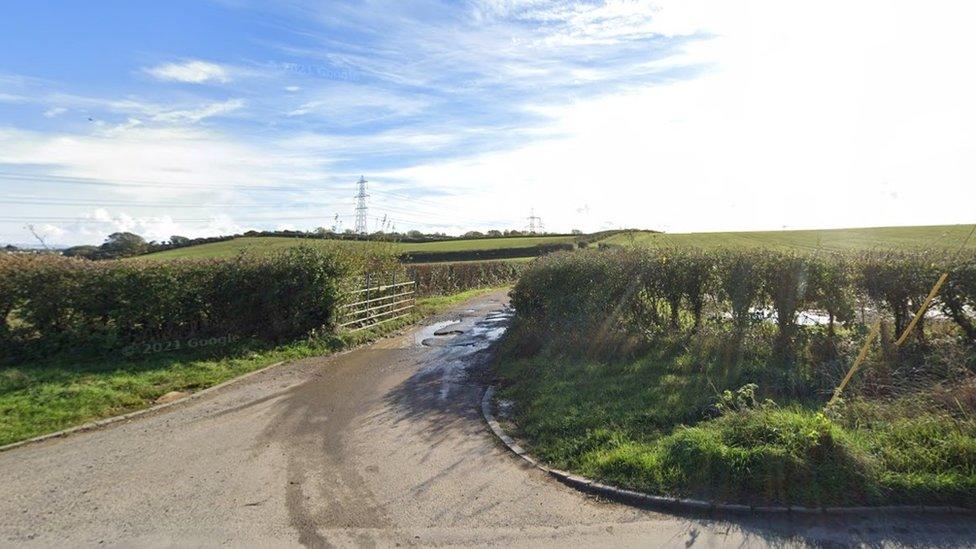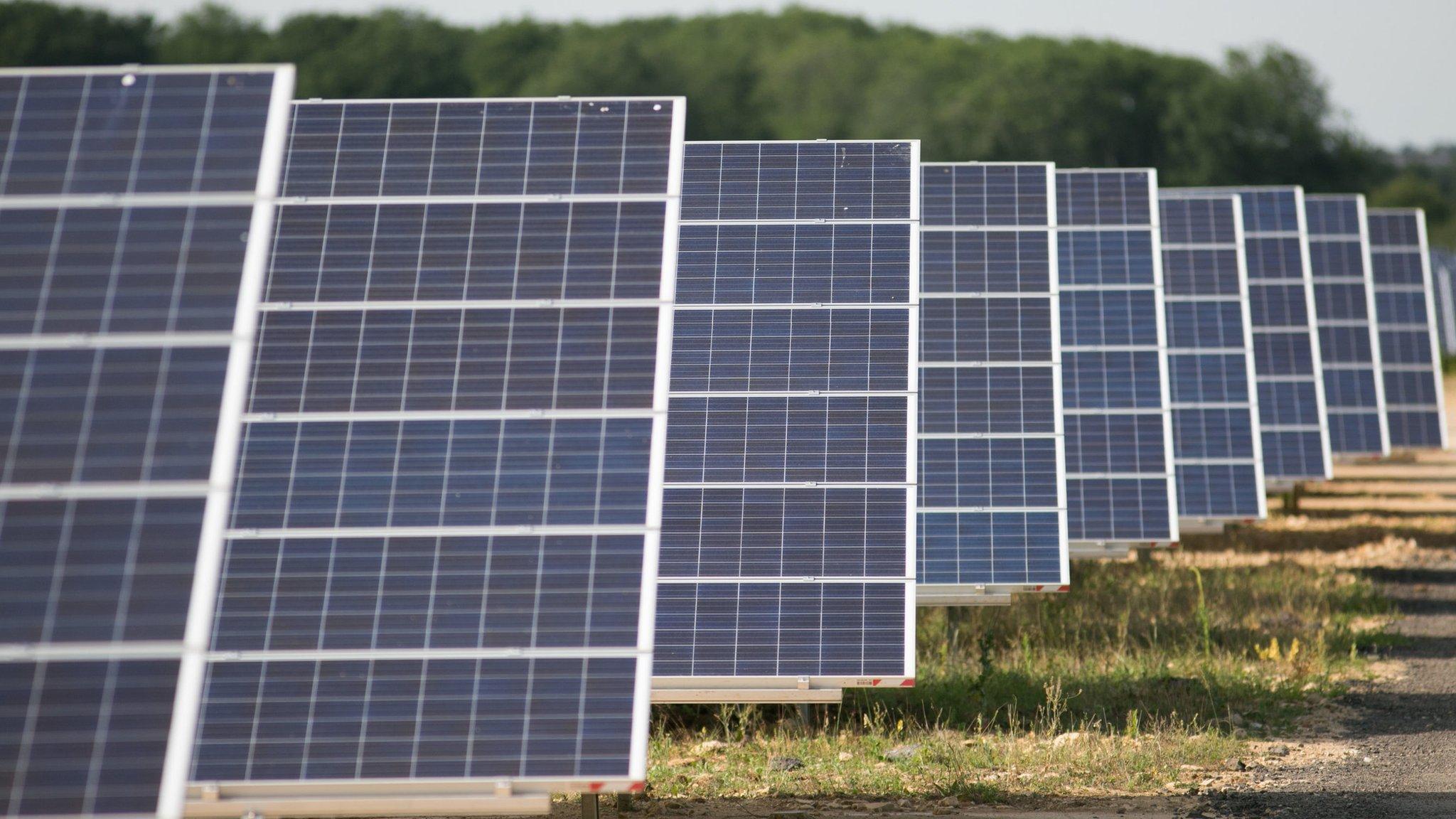Chickerell battery storage proposals 'a clear danger'
- Published

The battery storage facility would be located on land near Coldharbour near Chickerell
A massive battery storage facility would be "a clear danger" to people living nearby, opponents have claimed.
Statera Energy has proposed the development near Chickerell, Dorset, to store energy when the power grid has more than needed, and release it at times of higher demand.
More than 130 objections have been received, with the 60 containers described as unsightly and a fire risk.
Statera said the facility was in "the national - and global - interest".
If approved, the development - stretching from Coldharbour to the golf driving range next to Weymouth FC's ground - could become one of the biggest of its kind in Europe.
Dorset and Wiltshire Fire and Rescue said although firefighters were trained and equipped to deal with any incidents, it did have concerns about some aspects of the proposals.
"It would be true to say that the risks to firefighters cannot be eliminated completely as has been evidenced from fires in battery energy storage sites (Bess) sites in other parts of the world," it said.
'Essential infrastructure'
Lodging a formal objection, West Dorset MP Chris Loder said: "Fire safety of lithium ion batteries on such an enormous scale and in such proximity to a developed residential area is a cause for serious concern, as well as the aesthetic impact on the surrounding countryside."
Dorset Campaign for the Protection of Rural England (CPRE) also put in an objection.
It said: "Fires in even very small-scale battery systems can have devastating consequences, with thermal runaway effects which are extremely difficult to extinguish."
The site would be "a clear danger to the local population", it added.
Other submissions raised concerns about delivery vehicles using the site and disruption to a wildlife corridor.
Developer Statera Energy said the development would provide "essential renewable energy infrastructure" and offer local people more than 16 hectares of parkland and new footpaths on previously inaccessible land".
"The electricity grid is evolving to meet the challenge of climate change and that means a substantial expansion of grid infrastructure around the main substations," it added.
Its planning document covering fire risks said the batteries had "overtemperature protection, smoke and heat detection and fire suppression initiation".

Follow BBC South on Facebook, external, X, external, or Instagram, external. Send your story ideas to south.newsonline@bbc.co.uk.
Related topics
- Published5 July 2023

- Published18 June 2023
